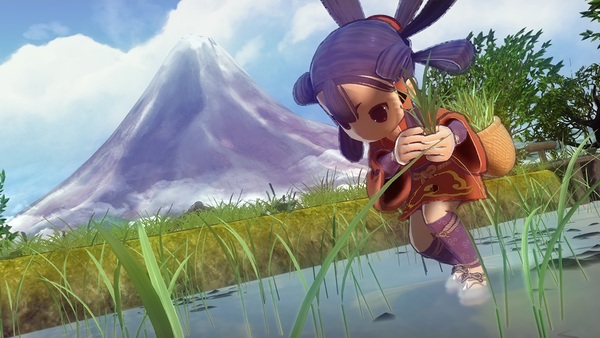Dear Reader:
Sakuna: Of Rice and Ruin dev grew rice as research for the game
Developers often go great lengths to make sure their games are the best they can be. Sometimes a lot of research is needed to properly convey a gameplay mechanic.
In Sakuna: Of Rice and Ruin, rice cultivation is a major part of gameplay. As such, the team behind the game actually grew their own rice to learn more about the process. In an interview with Siliconera, developer Edelweiss’ Nal talked about their experiencing growing rice for the game.
This was my first time developing a game that combined RPG and adventure elements with rice cultivation, so it was a huge learning experience skill-wise. By incorporating a real industry like rice cultivation into the game, I had the opportunity to reach out to people who work in that industry for research and review purposes, which really broadened my horizons. We could go in so many different directions for our future games, so it will be hard to pick just one.
An organization known as Japan Agricultural Cooperatives distributes rice growing kits for free. You can grow the rice in a bucket, so I tried growing some on my balcony.
For modern agriculture, I did research on the internet and borrowed academic papers from the National Diet Library (the largest government archive in Japan). We used this research when simulating how the rice grows in-game.
Because this game is based on Japan from long ago, we also needed to research old Japanese households and historical farming tools used for manual labor. I made my way to public archives of agricultural universities and the historical archives of rural regions (these exist all over Japan). To research traditional Japanese homes, I visited Kyoto and Shirakawa-go (a sightseeing village famous for old-style homes).
It was after the game was completed that we were able to speak with people from different industries. I had the chance to meet and talk with professional rice farmers, and I was interviewed by rice wholesalers and agricultural co-ops. I learned a lot and was able to broaden my horizons by speaking with people in industries that I don’t normally have any interaction with.
